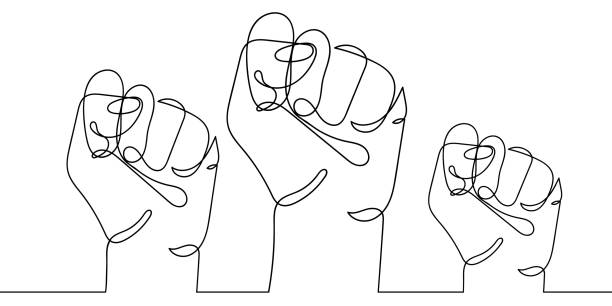The Impact of Three Strikes Law on Felony Charges in California

What is Deferred Adjudication for a Felony Charge?
November 20, 2023
The Role of Mental Health in Felony Cases – CA Court
November 23, 2023Unraveling the Layers of California’s Three Strikes Law
In the vast realm of California’s legal system, one law has stood out for its significant impact on felony charges—the infamous Three Strikes Law. Enacted with the intention of deterring repeat offenders, it has stirred debates, faced critiques, and left a lasting imprint on the lives of those entangled in its web. Join us on a comprehensive journey through the complexities of this law, understanding its implications, exploring recent changes, and delving into the human stories affected by it.
Table of Contents
- Understanding the Three Strikes Law
- 1.1 Background and Origins
- 1.2 Evolution of the Law: Amendments and Reforms
- The Mechanics of Three Strikes
- 2.1 Criteria for Strikes
- 2.2 Felony Classification and Sentencing
- Critiques and Controversies
- 3.1 Disproportionate Sentences
- 3.2 Impact on Minor Offenses
- Recent Changes and Reforms
- 4.1 Proposals for Reform
- 4.2 Current Status and Legislative Developments
- Navigating Three Strikes Defenses
- 5.1 Legal Strategies for Defense
- 5.2 Challenging Prior Convictions
- Personal Stories: Lives Affected by Three Strikes
- 6.1 Voices from Behind Bars
- 6.2 Families and Communities Impacted
- The Human Cost of Three Strikes
- 7.1 Rehabilitation vs. Punishment
- 7.2 Calls for Restorative Justice
- The Role of Intent in Three Strikes Cases
- 8.1 Intent and Its Legal Implications
- 8.2 Challenges in Proving Intent
- Empowering Change: Advocacy and Awareness
- 9.1 Organizations Fighting for Reform
- 9.2 Grassroots Movements and Community Involvement
- The Future of Three Strikes Law in California
- 10.1 Predictions and Speculations
- 10.2 Shaping a More Just Legal Landscape
Critically Engaging FAQs
Q1: Can a Strike Be Removed from a Criminal Record?
Yes, under certain circumstances, a strike may be removed from a criminal record. Seeking legal counsel is crucial to understanding eligibility and navigating the expungement process.
Q2: How Does the Three Strikes Law Affect Juvenile Offenders?
Juvenile offenses can contribute to strikes under the Three Strikes Law. Understanding the nuances of juvenile criminal law is essential for both parents and young individuals.
Q3: What Reforms Are Currently Being Advocated for in California?
Various organizations are pushing for reforms, including reevaluating mandatory minimum sentences and addressing disparities in sentencing based on the nature of offenses.
Understanding the Three Strikes Law
Background and Origins
The Three Strikes Law, implemented in 1994, was initially conceived to target repeat offenders and curb escalating crime rates. The law stipulates that individuals with two or more prior serious or violent felony convictions will face significantly enhanced sentences for any subsequent felony convictions.
Evolution of the Law: Amendments and Reforms
Over the years, the Three Strikes Law has undergone amendments and reforms in response to growing concerns about its fairness and effectiveness. Changes in sentencing criteria and a reevaluation of its impact on non-violent offenses have been central to these reforms.
The Mechanics of Three Strikes
Criteria for Strikes
For an offense to qualify as a “strike,” it must fall into the categories of serious or violent felonies as defined by California law. These include crimes such as murder, sexual assault, and certain robbery offenses. Each strike adds considerable weight to subsequent convictions.
Felony Classification and Sentencing
The law mandates a doubling or tripling of the standard sentence for individuals with one or two prior strikes, respectively. A third strike can result in a life sentence, even for non-violent offenses, depending on the nature of the prior convictions.
Critiques and Controversies
Disproportionate Sentences
One of the primary criticisms of the Three Strikes Law is its tendency to impose disproportionately harsh sentences, especially for non-violent offenses. Critics argue that this approach undermines the principles of fairness and rehabilitation in the justice system.
Impact on Minor Offenses
Minor offenses, when counted as strikes, can lead to severe consequences. Critics highlight cases where individuals with non-violent histories end up with life sentences due to the accumulation of strikes for relatively minor infractions.
Recent Changes and Reforms
Proposals for Reform
In response to mounting criticism, there have been ongoing proposals for reforming the Three Strikes Law. Advocates argue for a more nuanced approach, distinguishing between violent and non-violent offenses in determining sentencing enhancements.
Current Status and Legislative Developments
As of 2021, the Three Strikes Law remains a focal point of legislative discussions. Changes to the law are continually debated, with lawmakers striving to strike a balance between public safety and a fair and just legal system.
Navigating Three Strikes Defenses
Legal Strategies for Defense
Navigating the complexities of the Three Strikes Law requires strategic legal defense. Knowledgeable defense attorneys can explore avenues such as challenging the validity of prior convictions or negotiating reduced charges to mitigate the impact of the law.
Challenging Prior Convictions
Challenges to prior convictions may involve demonstrating legal errors in the previous cases or proving that the offenses do not meet the criteria for strikes. Successful challenges can significantly alter the trajectory of a current case.
Personal Stories: Lives Affected by Three Strikes
Voices from Behind Bars
Behind every legal debate are real stories of individuals serving lengthy sentences under the Three Strikes Law. Hearing these voices sheds light on the human cost of a legal system that prioritizes punishment over rehabilitation.
Families and Communities Impacted
The impact of the law extends beyond individuals to their families and communities. Mandatory long sentences can fracture families and disrupt the social fabric of communities, raising questions about the true efficacy of such punitive measures.
The Human Cost of Three Strikes
Rehabilitation vs. Punishment
Central to the debate surrounding the Three Strikes Law is the question of rehabilitation versus punishment. Critics argue that the law’s focus on punishment undermines opportunities for individuals to reintegrate into society as productive, law-abiding citizens.
Calls for Restorative Justice
In seeking alternatives to punitive measures, there is a growing call for restorative justice approaches that prioritize repairing harm, promoting healing, and addressing the root causes of criminal behavior.
The Role of Intent in Three Strikes Cases
Intent and Its Legal Implications
Proving intent is a crucial aspect of Three Strikes cases. The law hinges on demonstrating that the prior offenses were committed with the intent required for them to qualify as serious or violent felonies.
Challenges in Proving Intent
The legal challenges in proving intent can be intricate. Defense attorneys may argue that the circumstances of the prior offenses do not align with the legal definitions of serious or violent felonies, leading to a reevaluation of whether they should be counted as strikes.
Empowering Change: Advocacy and Awareness
Organizations Fighting for Reform
Several organizations are actively advocating for reform of the Three Strikes Law. These groups work to raise awareness about its impact, lobby for legislative changes, and support individuals affected by its harsh sentencing provisions.
Grassroots Movements and Community Involvement
Change often starts at the grassroots level, with communities coming together to advocate for a fairer and more just legal system. Grassroots movements play a pivotal role in shaping public opinion and influencing policymakers.
The Future of Three Strikes Law in California
Predictions and Speculations
The future of the Three Strikes Law in California remains uncertain. Predictions range from continued debates and incremental reforms to more comprehensive overhauls that address the law’s inherent challenges and criticisms.
Shaping a More Just Legal Landscape
Ultimately, the evolution of the Three Strikes Law will be shaped by ongoing efforts to strike a balance between public safety and a more just legal landscape. Informed discussions, advocacy, and community engagement will play pivotal roles in this process.
Conclusion: Advocating for Change and Legal Justice
As we conclude this extensive exploration into the impact of California’s Three Strikes Law, it’s evident that the legal landscape is dynamic and subject to change. Whether you’re directly affected or an advocate for justice, understanding your rights and the nuances of the law is the first step towards a fairer legal system.
For expert guidance and legal support in navigating felony charges in California, consider reaching out to Thompson Law, a trusted firm with over 14 years of experience in family law, criminal law, and estate planning and probate.
admin
Related posts
Enter Thompson Law, the stalwart guardians of familial harmony in Bakersfield. With a track record spanning over 15 years, they bring unparalleled expertise to the table. The team at Thompson Law isn't just well-versed in the legalities; they are passionate about safeguarding the emotional welfare of their clients. When it comes to family law matters, trust Thompson Law to be your guiding light through the legal maze.




